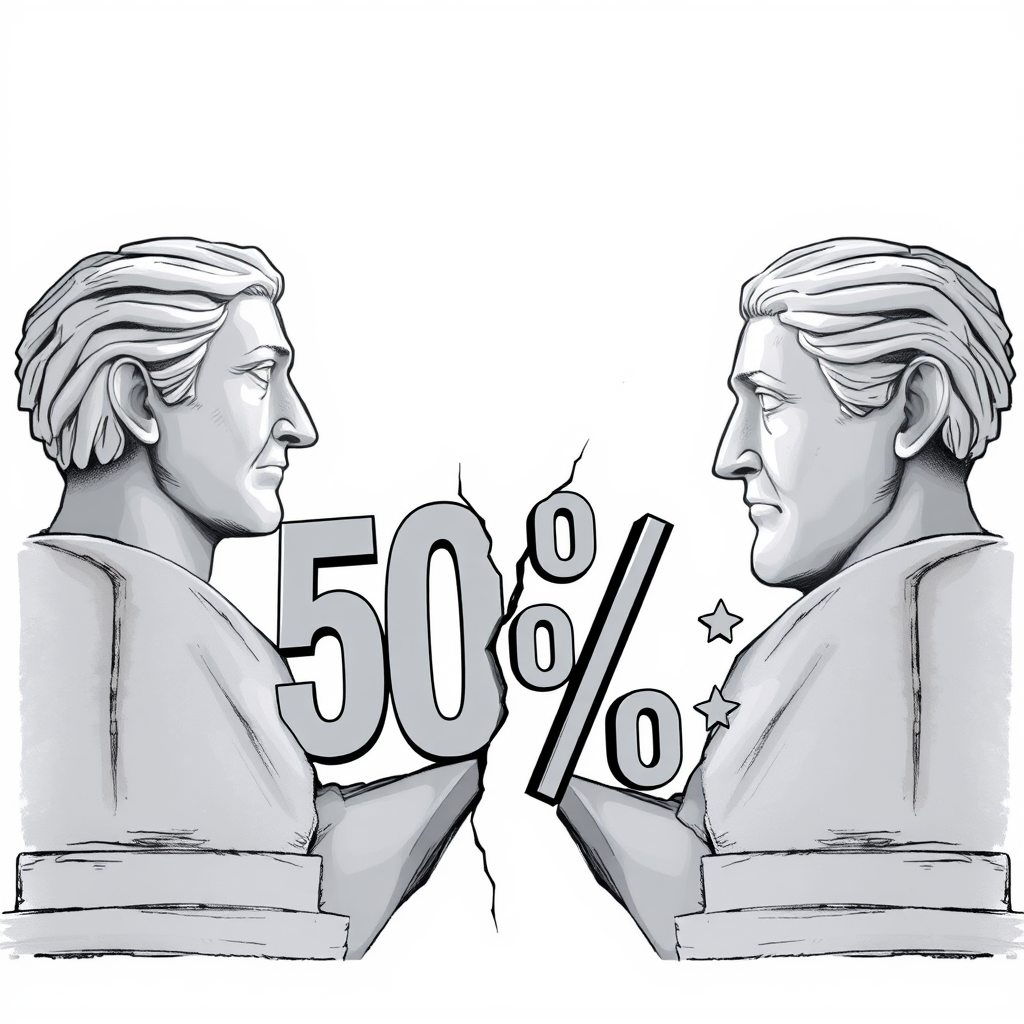Trump’s 50% EU Tariff Threat Sparks Trade War Fears

Donald Trump has reignited trade tensions with the European Union, announcing a proposed 50% tariff on all E.U. goods entering the United States, effective June 1, 2025. The move, delivered via social media on Friday, escalates a long-running dispute over trade imbalances and perceived unfair practices. Trump claims the E.U. was “formed for the primary purpose of taking advantage of the United States” and cites a $235.6 billion goods trade deficit in 2024 as justification. He insists the 50% tariff represents a firm offer, not a negotiation starting point.
The announcement has prompted immediate reactions from European leaders and business executives. Ursula von der Leyen, President of the European Commission, vowed a strong response, stating, “If you take on one of us, you take on all of us,” and emphasizing the E.U.’s commitment to defending its interests. Several European officials, including Irish Taoiseach Micheál Martin and German Foreign Minister Johann Wadephul, expressed disappointment and warned of the damaging consequences of a trade war for both sides.
U.S. Treasury Secretary Scott Bessent suggested the tariff threat was intended to “light a fire” under E.U. negotiators, hinting at internal divisions within the bloc where individual nations may not be fully aware of the E.U.’s negotiating positions. This claim, while potentially aimed at sowing discord, highlights a genuine complexity in representing 27 member states.
The proposed tariff builds on a history of trade friction during Trump’s presidency, including previous tariffs on steel and aluminum imports. While the U.S. has recently achieved some trade successes with the U.K. and a temporary tariff reduction agreement with China, the E.U. remains a key trading partner, and a full-scale trade war would undoubtedly disrupt global markets.
The situation feels particularly precarious given the current geopolitical climate. While Trump frames the issue solely through the lens of trade deficits, the move appears to be part of a broader pattern of protectionism and a willingness to disrupt established international norms. It’s a risky strategy that could backfire, leading to retaliatory tariffs, supply chain disruptions, and ultimately, harm to consumers and businesses on both sides of the Atlantic.
The E.U. appears prepared to respond in kind, but a negotiated solution remains the most sensible path forward. However, with Trump seemingly unwilling to compromise, the prospect of a damaging trade war looms large, threatening to further destabilize the global economy. The current posturing feels less about achieving a fair trade agreement and more about asserting dominance, a dangerous game with potentially far-reaching consequences.